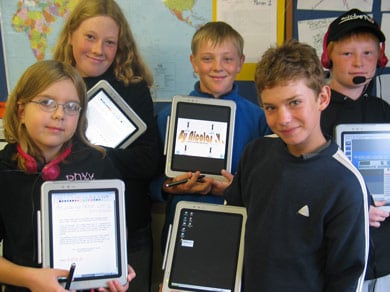"When you can think about what you're going to say, you can talk to someone you'd have trouble talking to. And it doesn't seem weird that you pause for two minutes to think about what you're going to say before you say it, like it would be if you were actually talking to someone."
 It never really occurred to me that this was the reason we decided to use these new ways of talking, and not just phone calls, because in just moments we can go from not knowing a answer to a persons text, to hoping on google to get the answer and send it in less than a minute. Texting and instant messages allows us to create yet another "persona" where we sound more perfect than we do in real life, because we are able to take those few moment in between texting to do so.We are changing so much that teenagers and kids are even being praised on their ability to text. After looking around i even found an article from the Wall Street Journal about the New York Text-Messaing Championship, and it was not surprise to me that a teenager Kate Moore 15 years old won the whole competition. Here's a link to the actual competition. Text-Messaging Championship
It never really occurred to me that this was the reason we decided to use these new ways of talking, and not just phone calls, because in just moments we can go from not knowing a answer to a persons text, to hoping on google to get the answer and send it in less than a minute. Texting and instant messages allows us to create yet another "persona" where we sound more perfect than we do in real life, because we are able to take those few moment in between texting to do so.We are changing so much that teenagers and kids are even being praised on their ability to text. After looking around i even found an article from the Wall Street Journal about the New York Text-Messaing Championship, and it was not surprise to me that a teenager Kate Moore 15 years old won the whole competition. Here's a link to the actual competition. Text-Messaging ChampionshipThe thought that these kids grew up with these technologies and were taught how to use them at such a young age are very interesting. Turkle also talks about this in this chapter, she describes it as "Overwhelmed across the Generations" Many of these older generations who did not grow up with the technologies we have now, are trying to incorporate themselves and become a part of them. "The fastest-growing demographic on Facebook is adults from thirty-five to forty-four." She brings up a very interesting thought about those who migrated to Facebook, those who were older, and the so called "natives" those teenagers who grew up using Facebook and people from the older generations who were introduced when it was fairly new. One example in the "natives" vs. the migrants that we see in in this sprint commercial.
This guy has no idea how to do something on Facebook that teenagers, some of which are too young to even have a Facebook can do in two seconds. What i take mainly from this example and most of the chapter is that people want to be accepted, not only accepted but appreciated. Texting, and Social Networking not only allow you to do this but makes it easier by molding yourself into the perfect answer, the best joke, or the most likes. In today's society it seems like people rather be known for who they are in these digital worlds through, texting, and social media, than in real life.



